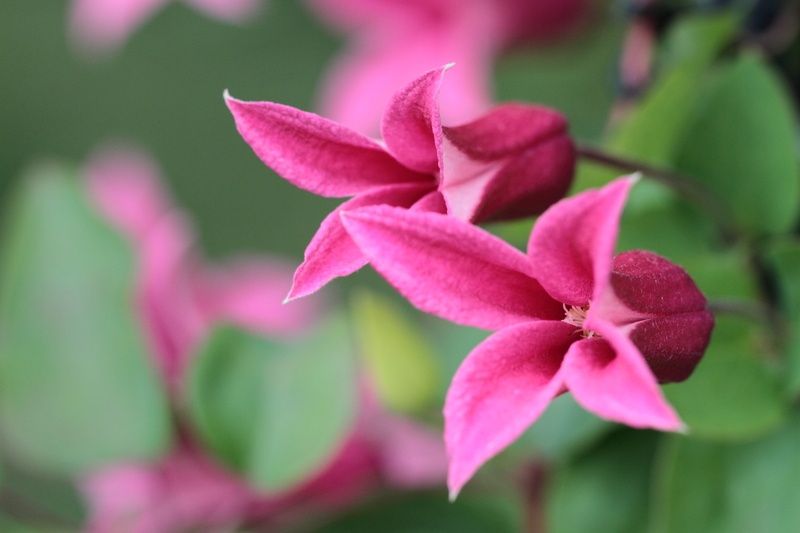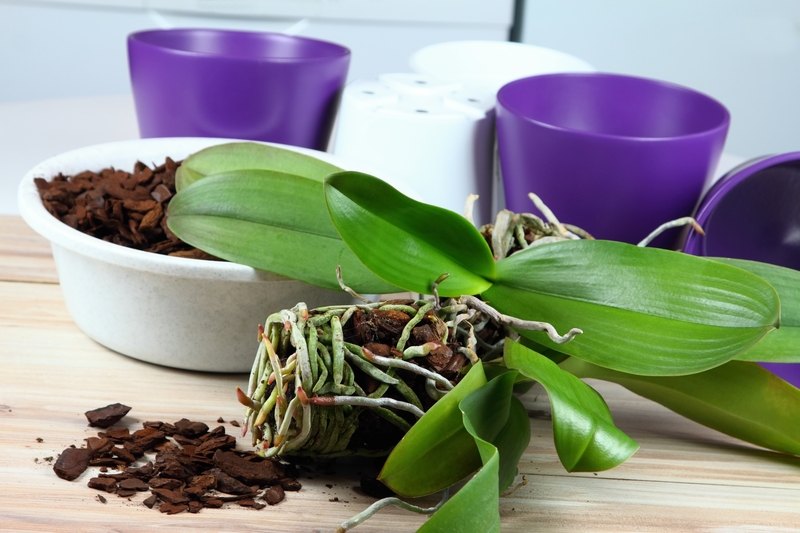Revitalize Your Garden with These 3 Powerful Weed Control Tips
Posted on 15/09/2025
Revitalize Your Garden with These 3 Powerful Weed Control Tips
A thriving, healthy garden is every homeowner's dream. Yet, the persistent challenge of weeds often threatens the beauty and productivity of your outdoor oasis. From luscious flower beds to productive vegetable patches, weed management is crucial for garden vitality. In this comprehensive guide, we delve into three proven, powerful weed control tips that will help you reclaim and rejuvenate your green space. Let's explore effective, practical, and eco-friendly strategies for revitalizing your garden and keeping unwanted invaders at bay!
Why Effective Weed Control Matters for Your Garden
Before diving into top weed control solutions, it's helpful to understand exactly why weed control is so vital for your garden's health and appearance. Weeds compete with your desired plants for essential nutrients, water, sunlight, and space. If left unchecked, they can quickly take over, smothering your flowers, vegetables, and lawn.
- Reduced Nutrient Competition: Weeds can deprive your plants of nutrients and slow their growth.
- Disease and Pest Control: Some weeds harbor pests and diseases that threaten your plants.
- Improved Appearance: A weed-free garden looks clean, lush, and inviting.
- Higher Yields: In vegetable gardens, weed control translates directly to bigger harvests.
Weed prevention and control is, therefore, one of the most important aspects of sensible garden maintenance.

Three Powerful Weed Control Tips to Transform Your Garden
Ready to revitalize your garden and restore its beauty? Use these three game-changing tips for long-lasting weed management and a flourishing landscape!
1. Mulch Like a Pro: Natural Blanket Against Weeds
Mulching is one of the best and most effective weed control methods for both flower and vegetable gardens. By spreading a protective layer of organic or inorganic material over the soil surface, you create a barrier that prevents weed seeds from receiving sunlight--a critical factor for germination and growth.
- Organic Mulch: Materials like shredded bark, straw, wood chips, compost, and grass clippings not only suppress weeds but also enrich your soil as they break down. They help retain moisture, promote microbial life, and improve soil structure.
- Inorganic Mulch: Landscape fabric, black plastic, gravel, or pebbles offer long-term weed suppression and are especially useful in paths and around perennial plants.
Tips for Effective Mulching:
- Apply a layer 2-3 inches thick for maximum weed-smothering power, but avoid piling mulch against plant stems to prevent rot.
- Refresh mulch regularly, especially after heavy rain or wind, which can break it down or disperse it.
- Use landscape fabric beneath organic mulch for double protection in weed-prone areas.
Mulching not only enhances the look of your garden but also locks out competitive weeds, ensuring your plants receive all the resources they need to thrive.
2. Smart Planting for Weed Prevention
The best garden weed control often starts with strategic planning. By using clever planting techniques, you can make your garden more resilient and less inviting to unwelcome weeds.
- Dense Planting: Position your plants closer together where appropriate. A dense canopy of foliage naturally shades the soil, denying weeds the sunlight they need to grow.
- Ground Covers: Use low-growing ground covers such as thyme, sedum, or creeping Jenny between taller plants and borders. These living mulches crowd out weeds while adding lush greenery and texture.
- Crop Rotation and Succession Planting: In vegetable gardens, rotating crops yearly and filling bare spots with quick-growing veggies prevents weed seed establishment and promotes healthy, productive beds.
By designing your beds to minimize bare soil and encouraging strong, healthy plants, you effectively choke out potential weed growth and maintain a vibrant, robust garden.
3. Hand-Pulling & Targeted Techniques: The Personal Touch
Although the dream is a weed-free garden with little effort, in reality, some manual intervention is sometimes necessary--especially for stubborn perennial weeds or invasive species. Smart, early intervention keeps seeds from spreading and heading off major infestations.
- Hand-Pulling: For newly sprouted weeds or those in tight spaces, hand-pull them after rain when the soil is moist. This makes it easier to remove the entire root system, preventing regrowth.
- Hoeing: Use a hoe to slice off annual weeds at the soil level. Shallow hoeing early in the season disturbs weed seedlings before they gain strength.
- Spot-Treatment: For tough perennial weeds, use targeted organic herbicides or boiling water to kill them at the root. Always follow product guidelines and avoid harming your plants.
- Regular Patrols: Walk your garden frequently. Early detection is key: pull or hoe weeds before they flower and set seeds, stopping them from multiplying next year.
Manual weed eradication, when combined with the shading and soil protection of mulch and strategic planting, forms a powerful three-pronged approach to successful garden weed control.
Bonus Weed Control Tips for a Healthy Garden
Want to take your garden weed control to the next level? Here are additional expert tips:
- Water Wisely: Use soaker hoses or drip irrigation to deliver water directly to plant roots. Keeping foliage and soil between plants dry makes it harder for weed seeds to germinate.
- Solarization: For beds with serious weed infestations, cover the soil with clear plastic for 4-6 weeks in summer. The trapped heat kills weed seeds and pathogens.
- Avoid Tilling: Minimize soil disturbance; tilling brings buried weed seeds to the surface. Try no-dig gardening for improved soil health and weed management.
- Use Pre-Emergent Controls: Organic options like corn gluten meal applied in early spring prevent the germination of some weeds without harming your plants.
Common Garden Weeds to Watch For
Knowing your enemy is essential. While identifying and controlling weeds can be challenging, a few culprits are common in most home gardens:
- Dandelions: Deep taproots; remove early before seeds disperse.
- Bindweed: Twining vines with deep roots; persistent hand pulling is needed.
- Crabgrass: Annual grassy weed; best controlled with dense planting and mulching.
- Chickweed: Rapid-spreading ground cover; pull early and often.
- Canada Thistle: Aggressive perennial; remove complete root or use targeted treatments.
Promptly dealing with these common invaders ensures your garden remains healthy and attractive year-round.
Eco-Friendly vs. Chemical Weed Control: Make the Right Choice
While chemical herbicides may promise fast results, they can harm beneficial insects, pollinators, and even your soil health. Wherever possible, choose organic and sustainable weed management methods. These approaches not only preserve your garden's ecosystem but also support long-term vitality.
- Mechanical Control: Rely on weeding, mulching, and planting instead of repeated herbicide use.
- Mulch and Cover Crops: Employ natural weed barriers and green manure crops to improve soil while suppressing weeds.
- Selective Organic Herbicides: Products made from vinegar, clove oil, or citric acid are effective on young weeds when applied directly.
- Biological Controls: In some cases, introducing grazing animals (like chickens for small gardens) can help reduce weed pressure.
Always weigh the long-term effects and environmental impact before opting for chemical controls.

Frequently Asked Questions (FAQs) About Weed Control
1. How often should I mulch to keep weeds away?
For effective garden weed control, add mulch in spring and top up mid-season as it decomposes. Check garden beds after storms or heavy rain and fill any bare patches right away.
2. Are there any plants that naturally suppress weeds?
Yes! Plants like sweet woodruff, creeping thyme, daylilies, and hostas act as living mulch to shade out weeds in beds and borders.
3. Is hand-weeding really effective for large gardens?
While hand-weeding is more practical in small areas, combining it with the right mulch and smart planting strategies makes it manageable--even for big spaces. Tackle weeds before they mature and you'll prevent most from returning next season.
4. Can I compost weeds I pull from my garden?
Compost annual weeds before they set seed, but avoid composting perennial roots or mature weeds with seeds to prevent spreading.
Conclusion: Achieve a Weed-Free, Revitalized Garden
Persistent weeds don't have to be your garden's downfall. By putting these three powerful weed control tips into action--mulching, strategic planting, and timely weeding--you'll cultivate a lush, beautiful, and healthy landscape year after year.
A little planning and the right techniques go a long way in achieving a weed-free, revitalized garden you'll be proud of! Start today and enjoy the rewards of a vibrant and flourishing outdoor haven.
Take back control of your garden, nurture your plants, and enjoy a picturesque outdoor retreat--free from troublemaking weeds!
Latest Posts
Gusty Garden? Practical Ways to Reduce Wind Impact
Crucial Gardening Equipment for Outdoor Enthusiasts
Vertical Gardens: Green Wall Wonders
Steps to Develop a Stimulating Garden for Young Minds
Revitalize Your Garden with These 3 Powerful Weed Control Tips

